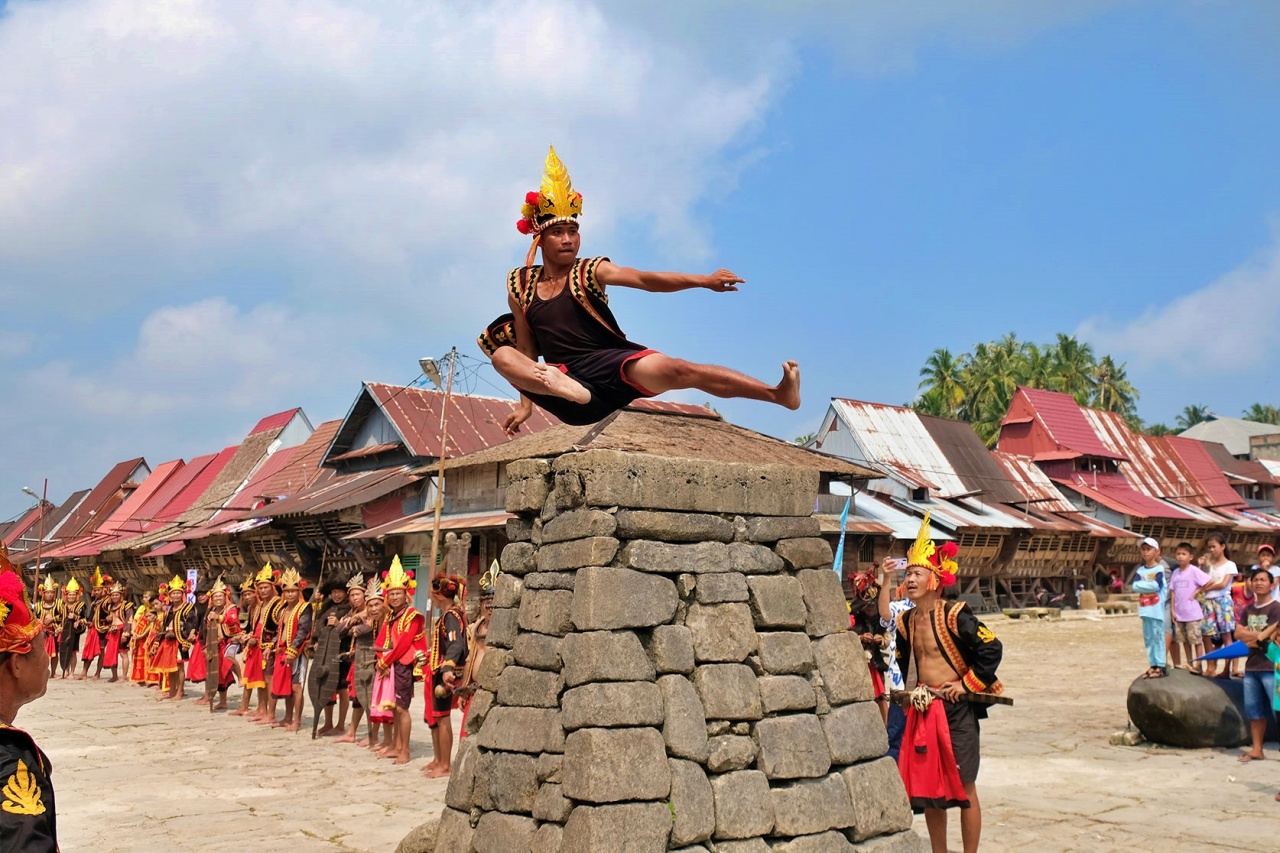The existence of various unique cultural festivals in Indonesia cannot be separated from the diversity of Indonesian cultures and tribes.
Talking about culture in Indonesia is endless. There are many tribes in Indonesia, each with its own culture. With so many cultures, Indonesia has a variety of cultural festivals that have their own uniqueness. Here are some of the cultural festivals in Indonesia.
7 traditional festivals in Indonesia
Erau Kertanegara Festival


Erau is a tradition held every year in Tenggarong City, Kutai Kartanegara, East Kalimantan. Erau comes from Kutai language whose name is Eroh which means crowd, noisy, pleasant environment.
In ancient times, Erau was kept by relatives of the palace during the heyday of the Kutai Kingdom. However, because the era of the Kutai Kingdom has come to an end, the Erau festival is now taken over by the government as a commemoration of the anniversary of the city of Tenggarong. If you come to this festival, you will see many dishes that will be on display, such as the lighting of giant fireworks, for example.
Baliem Valley Festival

Baliem Valley Festival, Dani, Lani, and Yali Tribe “War” Tradition.
The Baliem Valley Festival was originally held in 1989. Prior to this, the Baliem Valley Festival was a battleground between the Dani, Lani, and Yali tribes as a symbol of fertility and prosperity. This festival is the arena of the struggle for power between the tribes and has been going on for generations. The interesting thing about the Balim Valley Festival is the beautiful view that symbolizes the war that started it.
Pasola Tradition

“War” tradition in Pasola, Sumba.
This Pasola tradition is basically a skillful game of throwing wooden spears at each other while riding a horse. Pasola is part of a series of traditional ceremonies performed by the Sumba people who still follow the Marpu religion (the local religion of the Sumba community). Pasola games are held in four villages of the West Sumba district namely Kodi, Lamboya, Wonokaka, and Gaura. Pasola is held every year in four villages alternately between February and March.
Rock Jumping Festival

Fahombo is an adult ritual for Nias youth.
Fahombo, Rock Jumping, or Hombo Batu are traditional sports for the people of Nias. So it is a game in the Nias tribe, as well as a ritual for the Nias youth to reach maturity. Nias warrior costumes show that they are ready for battle and ready to fulfill their responsibilities as parents. The festival requires young people to jump two meters above a row of rock formations.
Karapan Cow Festival

A jockey must master a pair of cows to the finish line.
Karapam Sapi is a term to refer to a cow racing competition originating from Madura Island, East Java. In this race, a pair of cows will pull the wooden cart where the jockey stands to control the cow. These cows will compete among themselves on the 100-meter track.
Karpan Sapi usually takes place in August and September every year in several cities on the island of Madura. The final is usually held in late September, in the former town of Pemecasan, for the President’s Revolving Cup.
Lake Toba Festival

Hundreds of dancers come to life at the Lake Toba Festival.
The Lake Toba Festival is actually a replacement for the less well-known Lake Toba Festival. The Lake Toba Festival was organized in collaboration with the Head of the North Sumatra Tourism Office to present a festival based on an idea of the Ministry of Tourism and Creative Economy to become a tourist attraction. Lake Toba is now trying to promote a local culture that is more professionally packaged. The main attraction of this festival is the Sigal Jail Carnival which is a typical Toba Batak wooden puppet show.
Grebeg Maulud Yogyakarta

Grebeg Maulud mountain convoy.
Grebeg Maulud is held to commemorate the birthday of Prophet Muhammad which falls on the 12th of Rabiul Awal. In this celebration, the Vowagars will see a mountain parade through the community. Many types of vegetables and other plants are found in the mountains. The purpose of Mataram was to symbolize the prosperity and wealth of the land.
The Grebeg Maulud Festival usually precedes the appearance of the Sekatane Folk Market in Yogyakarta’s northern square. In addition to Grebeg Maulud, there are Grebeg Syawal and Grebeg Besar. The only difference is the execution time. If Saywal Grebeg is done after Ramadan and Bada Grebeg is done after Eid al-Adha.
Frequently Asked Questions
Are these festivals open to tourists?
Indonesia’s rich cultural heritage awaits at festivals open to tourists. It’s a wonderful opportunity!
When is the best time to visit these festivals?
Attending festivals is a great way to experience new cultures, but timing is everything. Checking the specific festival dates beforehand is a must, given that they vary. You definitely don’t want to show up late or miss out on all the fun. Plan your trip ahead and be ready to immerse yourself in some fantastic festivities.
What should I wear when attending these festivals?
To properly attend these festivals, modest dressing is necessary, which means covering your shoulders and knees. Nonetheless, casual and comfortable clothing is still acceptable in most instances.
Is there an entrance fee for these festivals?
Entrance fees, if applicable, are usually modest. Some festivals may offer free admission.
What is the significance of these festivals to the local communities?
Celebrating their customs and traditions, these festivals have immense cultural and historical importance for the local communities. These events also draw crowds from various parts of the globe.

